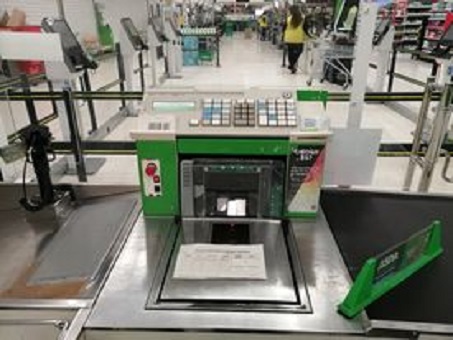Christmas and the Omicron variant

It had looked as though we could enjoy a normal Christmas, and a reasonably normal life again after that.
The vaccination programme had reduced infection levels, and especially the more serious effects of COVID-19. The compulsory wearing of masks in shops and on public transport was dropped.
After spending millions of pounds to try to contain the epidemic, it could be argued that the wearing of face masks is a measure that is quick, simple, cheap and effective.
Retail analysts Springboard released research showing that by October 2021 most people were “very happy” to visit stores and more than 90% happy to some extent. Sales of many items, especially clothing, were on the rise, and surveys showed that people were prepared to splash out to enjoy the festive period.
Problems in the supply chain had not gone away completely, but after more than six months were starting to stabilise.
Many were uncomfortable with the dropping of face mask restrictions, especially at the insistence of MP’s claiming that this was a matter of “liberty” (since when did liberty include the right to potentially harm others?). But we were told that there was a Plan B in case it was needed.
Then, alongside storm Arwen, the Omicron variant arrived in Britain.
The Government immediately put several African countries on the travel red list, including some that hadn’t recorded a single case of Omicron, while not including some European countries where Omicron was present.
There had been repeated calls from scientists to increase the supply of vaccines to poorer countries, because of the possibility of new variants of COVID evolving in countries with low levels of immunity.
We are still waiting to hear whether our current vaccines are effective against Omicron and being advised to enjoy the festive period as planned.
Plan B?
Returning travellers are now told to undergo compulsory quarantine in hotels at their own expense, and self isolate until they receive a negative test from a private sector provider.
The wearing of face masks is now once again compulsory in shops and on public transport, but not in other crowded places, in order to protect the economy.
Inflation and shortages
The Confederation of British Industry (CBI) is warning of the biggest price rises since 1990.
Price rises and gaps on supermarket shelves are being blamed on COVID, a post-COVID rise in demand, delivery driver shortages and Brexit. All of these may have had a part to play.
We’re also told that climate change means that many people living in poorer countries are unable to feed themselves. That’s also true, but it also means that they’re less able to feed us! Crop yields have been affected all over the world, so there is simply less for us to buy. So prices will rise and continue to do so. Extreme climate “events” are starting to hit industrial production as well.
.

